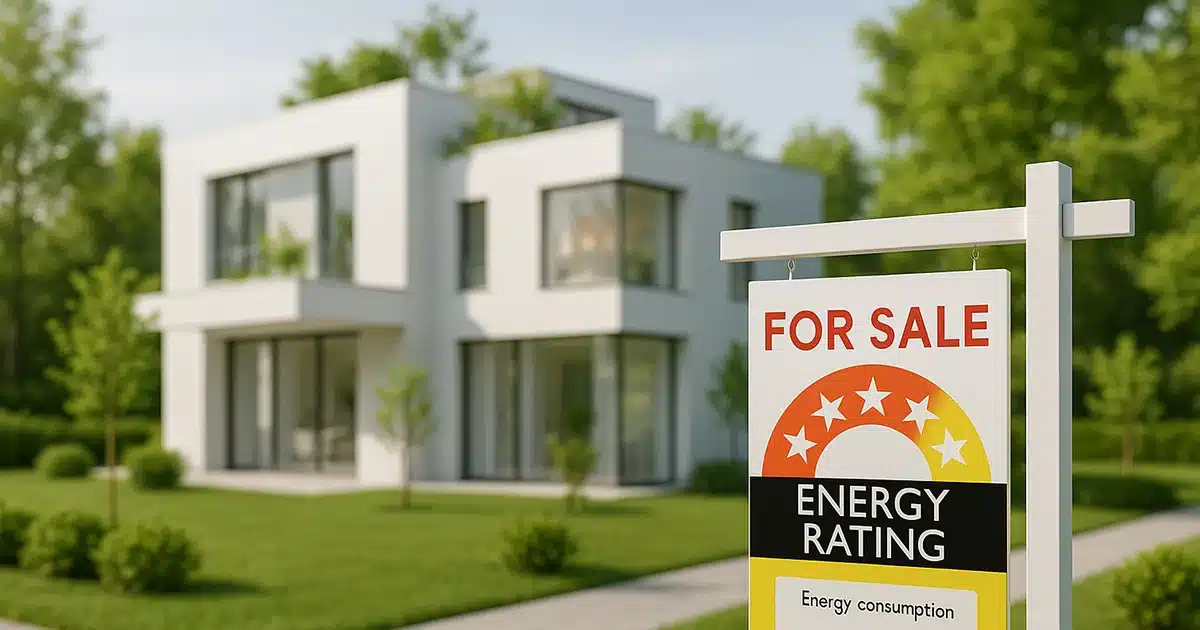Recent research indicates Australians are increasingly influenced by sustainability considerations in property decisions. Green homes have been shown to attract 16.7% greater buyer interest and sell 4% quicker.
But for builders, developers and industry professionals in NSW, meeting these considerations is about more than providing market value or contributing to a sustainable future. The Building Sustainability Index (BASIX) is a crucial part of the development application process and meeting regulatory requirements in NSW. It serves as a guide towards water efficiency, energy efficiency, thermal comfort, and sustainability standards for environmentally responsible residential design.
With this in mind, let’s cover BASIX requirements, assessment criteria, and compliance steps, as well as ways to achieve BASIX certification.
What we’ll cover in this article
- What is BASIX and How Does it Work?
- What do BASIX Requirements and Assessment Criteria Cover?
- Steps You Can Take in the BASIX Certification Process
What is BASIX and How Does it Work?
BASIX is an online planning and sustainability assessment tool for new residential buildings in NSW. First introduced in 2004, it is aligned with the National Construction Code 2022, which forms an important part of the development application process, and is one of the strongest sustainable planning measures required in Australia. The goal of the tool is to reduce the environmental impact of new residential developments - thus homes that are more comfortable, resilient, sustainable and affordable to run.
BASIX Certification enables new homes in NSW to endure fluctuating seasonal temperatures with energy efficiency, while reducing carbon emissions and water consumption.
Projects that require BASIX compliance include:
- all new residential dwellings
- renovations costing $50,000 or more
- swimming pool or spa installations of 40,000 litres or more.
BASIX Standards cover the following major areas:
- Water efficiency – includes targets for annual water consumption, depending on climate zone, and water-saving measures.
- Energy efficiency – assesses the heating and cooling appliance or fuel type in the Energy Index, while considering building orientation and design elements to improve thermal performance.
- Thermal comfort – assesses heating and cooling loads placed on new homes based on materials; average thermal performance standards must be met to ensure homes remain comfortable year-round, with reduced reliance on heating and cooling technology.
It’s important to note, recent changes introduced October 2023 have impacted BASIX standards surrounding:
- Thermal performance – buildings must reach 7 star thermal performance standards within the Nationwide House Energy Rating Scheme (NatHERS).
- Reducing greenhouse gas emissions – depending on the location and type of residential development, greenhouse gas emissions must be reduced by 7-11%.
- Reporting on construction materials – the BASIX materials index calculates embodied energy (greenhouse gases generated during the production and transport of materials).
Overall, meeting these standards for compliance and implementing sustainability upgrades improves the quality of NSW homes, liveability conditions, comfort, and running costs.
What do BASIX Requirements and Assessment Criteria Cover?
Meeting BASIX criteria isn’t a one-size-fits-all approach. But it’s worth bearing in mind there are many sound, sustainable design decisions can have an impact on compliance and efficiency.
Water Efficiency
BASIX involves evaluation criteria for water efficiency, with the aim to reduce the water footprint of residential buildings. Depending on climate zones, target reduction ranges up to 40%.
This covers all areas of annual water consumption, including showers, toilets, taps, appliances, irrigation, pools and spas, evaporative coolers, and cooling towers. It also includes the capture and use of alternative water (such as recycled water and rainwater tanks).
Importantly, water efficiency requirements differ between locations due to factors such as climate and rainfall, availability of water resources, regional guidelines and local government policies.
Consider integrating water-saving measures, such as:
- high efficiency taps and fixtures
- dual-flush toilets
- new technologies using digital controls to reduce water use in cooling, irrigation and leakage control
- landscaping considerations, such as drought-tolerant plants and efficient irrigation systems
- rainwater harvesting systems.
These measures contribute to environmental sustainability, while lowering water bills for occupants, making BASIX-compliant homes both eco-friendly and economical.
Energy Efficiency
Energy efficiency refers to how much energy a new building uses to operate key systems, such as lighting, appliances, heating and cooling.
Recent changes introduced in October 2023 have impacted BASIX standards for energy efficiency in new residential developments. The new rating has been raised to 7 stars on the Nationwide House Energy Rating Scheme (NatHERS), meaning you’ll be required to provide the heating, cooling and total loads for the house.
Attaining the 7-star rating may involve a range of approaches such as:
- choosing energy-efficient appliances and lighting fixtures
- installing more insulation materials or thicker layers to meet higher standards (R5. 0) for roof insulation
- improving the performance and location of windows
- utilising good air flow, shading and sunlight to cool and heat homes naturally
- selecting energy-efficient hot water systems, such as electric heat pumps or solar hot water systems
- installing photovoltaic panels to supplement a 5-star gas hot-water systems
- choosing a more efficient heating and cooling system, such as 3-star reverse cycle air-conditioning systems.
Meeting energy performance standards can be demanding, so be sure to begin the star rating assessment early in your design process to stay on track.
Thermal Comfort
There is an important distinction to note. The Energy Index assesses heating and cooling appliances and fuel types (energy efficiency). However, thermal comfort is related to the heating and cooling loads on new dwelling by its fabric. It prioritises the thermal comfort for a building’s occupants, appropriate to the climate and season.
A building’s ability to maintain comfortable temperatures throughout the year, without the need for excessive heating or cooling can be optimised by design choices. Proper insulation, window placement, natural ventilation, and other passive design strategies can all contribute to optimising thermal comfort.
BASIX considers both energy efficiency and thermal comfort in reviewing building sustainability standards. These areas ensure new homes utilise energy resourcefully, while providing a comfortable living environment for occupants.
Steps You Can Take in the BASIX Certification Process
To demonstrate your development meets BASIX requirements, start by completing an assessment using the online BASIX Tool. Sign up and login to the NSW Planning Portal, enter your project information and calculate your score. The information you provide will evaluate water and energy consumption, and thermal comfort.
To overcome common challenges and achieve the best outcomes when completing the assessment, prepare well by:
- understanding BASIX sustainability standards for water efficiency, energy efficiency and thermal comfort
- inputting accurate data
- tailoring building designs based on climate zone specifications and water restrictions
- understanding upfront costs may increase for water/energy-saving measures; so, focusing on cost-effective design measures (such as efficient appliances) can be helpful to deliver long-term savings
- staying up to date with policy changes via the NSW Planning Portal.
When your development meets BASIX targets, you can generate a BASIX Certificate and include this with your development application.
The BASIX tool can be suitable for DIY purposes, simple homes, and renovations. But if you’re facing challenges or complex developments, professional guidance and support can be invaluable. Application Solutions can help you through the process. Book a chat with our assessment experts today.





